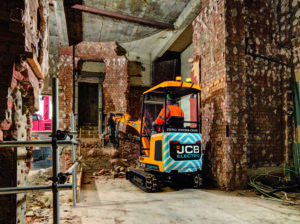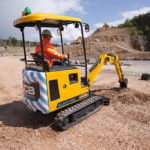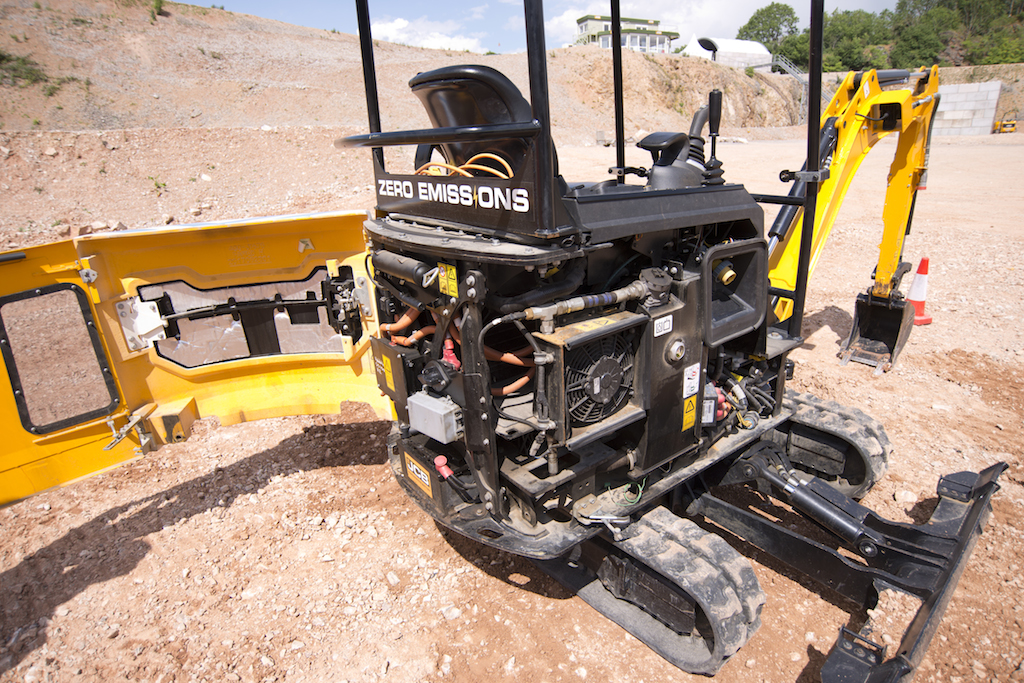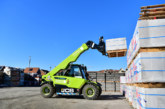Site preparation takes many forms, especially if urban brownfield locations are being developed and low emission machinery is required. Construction equipment journalist, Dan Gilkes, puts JCB’s new 1.9 tonne mini electric digger through its paces.
JCB has been at the forefront of the development of increasingly low emission diesel technology, with its growing range of Dieselmax and Ecomax engines. While diesel will remain essential for powering machines, the drive towards clean construction sites is seeing electric technology beginning to play a part.
The company is no stranger to electric drive of course, it has had electric access platforms for some years and currently offers both traditional lead acid and lighter lithium-ion battery packs in a number of models. However, the 19C-1E mini excavator really is something new, offering a full electric, battery only 1.9-tonne mini excavator, with all of the performance and productivity of its diesel counterpart.
 Range anxiety
Range anxiety
The 19C-1E is based on the firm’s high specification 1.9-tonne diesel model. The machine can be supplied with a choice three or four lithium-ion batteries, using the latest Nissan automotive technology. These provide either 15kWh for three batteries or 20kWh of storage capacity with four batteries, which JCB claims is enough to work all day for the majority of mini excavator customers.
Indeed, in trials prior to the launch, customers who expected to experience ‘range anxiety’ were surprised by how much spare capacity was left in the battery packs at the end of the day. JCB’s own research, taking data from hundreds of machines using its LiveLink telematics system, also shows that most customers with a 1.9-tonne mini excavator don’t work the machine hard for eight hours a day. JCB’s testing and analysis has shown that the battery will not need to be replaced during the lifetime of the machine.
The machine can be supplied with either a 230V or a 110V industrial charge lead, to suit construction use. Using the 110V input, from a completely flat battery, the mini excavator can be recharged in under 12 hours. That can be reduced to an eight-hour charge time using 230V. An optional off-board fast-charging system will also be offered, delivering a full charge in less than two hours.
High specification
The standard 19C-1 is a high specification mini and the electric model is equally well equipped. It comes with a ROPS/TOPS and FOGS certified canopy and a membrane switch pad to the right of the operator for lighting and other controls. The servo levers also get proportional rocker switches for auxiliary functions and for boom offset swing, keeping the cab floor clear for the operator.
Once in the operator’s seat, starting the machine is achieved by turning the key as normal, with a light on the dash showing that the motor is active. As with all JCB excavators the machine has the firm’s 2Go safety system, so the operator has to be seated with the seatbelt connected. They then have to press the 2Go button to make the servo levers active.
Then it’s simply a case of operating the machine like any other mini excavator. There is some hydraulic noise from beneath the bodywork, but the 19C-1E is said to be five times quieter than a diesel model and of course, it is zero emissions at the point of use. This should make it a popular choice with urban contractors, particularly those working overnight.
The lack of exhaust fumes will of course be the main point for many customers though. JCB admits that the machine will carry a premium over the equivalent diesel model. Running on electricity will invariably be cheaper than diesel, while service work is almost non-existent, limited to the normal hydraulic filter change and regular greasing. JCB is estimating service costs some 60-70% lower than for a comparative diesel model, while the estimated running cost for operators using an industrial electricity supply, will be around 50% lower than for diesel. That drops to 60% lower for a domestic user versus running on white diesel.










